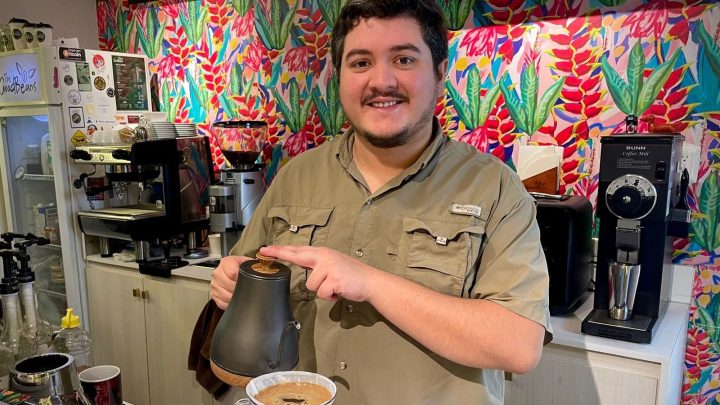
Has El Salvador’s bitcoin gamble paid off?


At a small coffee shop in San Salvador, the capital of El Salvador, customers come for freshly made coffee and packets of high-quality beans. And some pay in bitcoin.
The cryptocurrency has been legal tender in the Central American country for more than two years. Businesses are officially required to accept bitcoin, but patchy technology, limited internet access and a lack of enforcement means that only some do.
Coffee shop owner Gabe Gutierrez believes taking bitcoin payments has helped him attract customers.
“In a normal month, 5% to 10% of our sales are in bitcoin. The business impact has been very positive in that sense,” he said. “Obviously it’s bringing in revenue, but it’s not only that. It’s more convenient.“
President Nayib Bukele argued that adopting bitcoin would reduce dependence on the country’s other currency, the U.S. dollar, and make it cheaper to send and receive remittances — when migrants send home money to their family.
But in the first six months of 2023, according to El Salvador’s central bank, only around 1% of received remittances were in bitcoin. Many Salvadorans, like Delmy Bran, aren’t using the currency.
“If they educated the people in how to use the currency, then maybe we could,” he said.
Others like Bea Tenorio think the government’s decision was irresponsible. “A country needs medicine in the hospitals, resources in the schools. I don’t think those of us at the bottom will see the benefits of it.”
El Salvador has lost an estimated $40 million of its total investment in bitcoin since 2021 due to a decline in the value of the cryptocurrency. Carlos Acevedo, an economist and former president of El Salvador’s Central Reserve Bank, doesn’t think bitcoin is suitable as legal tender.
“It’s like playing Monopoly in the casino. You can win, you can lose — and we have had bad luck so far — but for people who are poor, they cannot afford to take a drop in 5%, 10% in one day.”
But the government is continuing to push bitcoin. It recently announced that bitcoin education would be compulsory in schools starting next year. People from other countries are also moving to El Salvador to use the cryptocurrency, like James Turner and Nicky Malcom of New Zealand.
“So I receive 100% of my income at the moment as bitcoin, which we then manage that to live our life here,” Turner said. “We use it to buy our groceries,” added Malcom.
Charlie Stevens moved here from Ireland. “I use bitcoin to trim my beard, for coffees, for gas, for cooking, I use it for my motorbike, and that’s just the tip of the iceberg.”
While some say El Salvador’s bitcoin project hasn’t succeeded, others believe it’s only just beginning.
There’s a lot happening in the world. Through it all, Marketplace is here for you.
You rely on Marketplace to break down the world’s events and tell you how it affects you in a fact-based, approachable way. We rely on your financial support to keep making that possible.
Your donation today powers the independent journalism that you rely on. For just $5/month, you can help sustain Marketplace so we can keep reporting on the things that matter to you.











